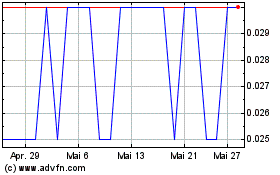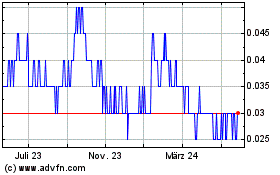AZINCOURT ENERGY CORP. (“Azincourt” or the
“Company”)
(TSX.V: AAZ, OTCQB: AZURF), is pleased
to announce that it has completed the winter 2024 diamond drill
program at the East Preston uranium project in the Athabasca Basin,
Saskatchewan, Canada.
The 2024 drill program consisted of 1,086 meters
of drilling in four diamond drill holes. Drilling commenced on
March 29th and was complete on April 19th. Logging of drill core,
sampling, and demobilization of all drill equipment, helicopter,
and crews was complete by the end of April. The priority for the
2024 drill program was to follow up on the clay alteration zone and
elevated uranium that was identified in the winter of 2023 with a
focus on the area of transition between the K and H Zones (Figure
2).
Winter 2024 Program
The winter 2024 program was executed by
Terralogic Exploration Inc. under the guidance of Azincourt’s Vice
President, Exploration, Trevor Perkins, P.Geo, and Jarrod Brown,
M.Sc., P.Geo, Vice President of TerraLogic Exploration. Field
activities were supervised by James Olsen, Geologist and Project
Manager with TerraLogic Exploration. Three holes were completed in
the H Zone, with one hole completed in the K Zone (Figure 3).
Drilling in 2023 identified an illite clay
alteration halo extending from the top of Zone K to Zone H as far
as drill hole EP0053. Within this illite alteration zone, dravite
and kaolinite are present in the north end of Zone H. Illite and
kaolinite are both indicators of hydrothermal alteration typically
found within alteration halos of unconformity uranium deposits.
Dravite is a boron-rich clay which is found within the larger clay
package proximal to uranium mineralization in the hydrothermal
system. Both illite and dravite have been identified as being
significant vectors for the 2022 JR Zone discovery by F3 Uranium
approximately 60 km to the northwest of the East Preston
project.
All holes intersected hydrothermal alteration;
however, the best alteration was intersected in the last two holes
of the program. Hole EP0059, completed in Zone K, was targeted to
follow up on kaolinite and dravite clay intersections and elevated
uranium from 2023 in holes EP0049 and EP0055. Patchy white clay
alteration was intersected within several structural zones in the
core. EP0060 was completed on the south end of Zone H to follow up
clay intersections and graphitic lithologies from 2023 in the
southern portion of Zone H. This hole intersected moderate to
strong white clay within zones of structure and intense fracturing.
Analysis of the clay species is in progress.
A total of 53 geochemical samples were collected
and sent to the Geoanalytical Laboratory at the Saskatchewan
Research Council in Saskatoon, Saskatchewan for analysis. Results
are expected in late June.
Samples of clay alteration were collected for
analysis by Short Wavelength Infrared Reflectance (SWIR, sometimes
referred to as “PIMA”) to confirm the clay species. 34 samples were
collected from current drillholes, with 20 samples also being
collected from previous drill holes in an effort to better outline
alteration halos and extents.
“The extension of the clay alteration halos in
the K- and H- Zones is a very good sign,” commented VP Exploration
Trevor Perkins. “Knowing the extents of the halos and the types of
clay present are important steps in identifying and prioritizing
follow-up drill targets. All indications are that we are vectoring
in on something. The more we see, the better the team is getting at
identifying which halos are the important ones to chase. A
significant number of deposits in the Athabasca Basin have been
found by identifying and chasing these types of clay alteration
patterns,” continued Mr. Perkins.
East Preston Targets
The primary target area on the East Preston
Project is the conductive corridors from the A-Zone through to the
G-Zone (A-G Trend) and the K-Zone through to the H and Q-Zones
(K-H-Q Trend) (Figure 2). The selection of these trends is based on
a compilation of results from the 2018 through 2020 ground-based EM
and gravity surveys, property wide VTEM and magnetic surveys, and
the 2019 through 2022 drill programs, the 2020 HLEM survey
indicates multiple prospective conductors and structural complexity
along these corridors.
Drilling has confirmed that identified
geophysical conductors comprise structurally disrupted zones that
are host to accumulations of graphite, sulphides, and carbonates.
Hydrothermal alteration, anomalous radioactivity, and elevated
uranium have been demonstrated to exist within these structurally
disrupted conductor zones.
Permitting and Community
Relations
Permits are in hand to conduct exploration
activities at the East Preston property through the summer of 2026.
Azincourt re-recognizes that the granting of these permits does not
negate the rights of the local communities for meaningful
consultation as the project progresses. The company looks forward
to a continued close working relationship and regular consultation
with CRDN and other rights holders to ensure that any potential
impacts and concerns are addressed and that the communities can
benefit from activities in the area through support of local
business, employment opportunities, and sponsorship of select
community programs and initiatives. Local businesses are engaged to
provide services and supplies and members of the Clearwater River
Dene Nation and surrounding communities have been directly employed
on site or to provide support and services to keep the camp and
programs running. The involvement of the local communities is
essential for continued advancement of the East Preston
Project.
Figure 1: East Preston Project Location – Western Athabasca
Basin, Saskatchewan, Canada
Figure 2: 2024 Target areas at the East Preston
Uranium Project. Primary target area of illite, dravite and
kaolinite clay alteration highlighted in red.
Figure 3: East Preston 2024 Drill Hole Location
map focused on the K and H Zones.
About East Preston
Azincourt controls a majority 86.1% interest in
the 20,000+ hectare East Preston project as part of a joint venture
agreement with Skyharbour Resources (TSX.V: SYH), and Dixie Gold.
Three prospective conductive, low magnetic signature corridors have
been discovered on the property. The three distinct corridors have
a total strike length of over 25 km, each with multiple EM
conductor trends identified. Ground prospecting and sampling work
completed to date has identified outcrop, soil, biogeochemical and
radon anomalies, which are key pathfinder elements for unconformity
uranium deposit discovery.
The East Preston Project has multiple long
linear conductors with flexural changes in orientation and offset
breaks in the vicinity of interpreted fault lineaments – classic
targets for basement-hosted unconformity uranium deposits. These
are not just simple basement conductors; they are clearly
upgraded/enhanced prospectively targets because of the structural
complexity.
The targets are basement-hosted unconformity
related uranium deposits similar to NexGen’s Arrow deposit and
Cameco’s Eagle Point mine. East Preston is near the southern edge
of the western Athabasca Basin, where targets are in a near surface
environment without Athabasca sandstone cover – therefore they are
relatively shallow targets but can have great depth extent when
discovered. The project ground is located along a parallel
conductive trend between the PLS-Arrow trend and Cameco’s
Centennial deposit (Virgin River-Dufferin Lake trend).
Qualified Person
The technical information in this news release
has been prepared in accordance with the Canadian regulatory
requirements set out in National Instrument 43-101 and reviewed on
behalf of the company by C. Trevor Perkins, P.Geo., Vice President,
Exploration of Azincourt Energy, and a Qualified Person as defined
by National Instrument 43-101.
About Azincourt Energy
Corp.
Azincourt is a Canadian-based resource company
specializing in the strategic acquisition, exploration, and
development of alternative energy/fuel projects. The Company has
been an active uranium explorer for over a decade and is currently
active at its majority-owned joint venture East Preston uranium
project located in the Athabasca Basin, Saskatchewan, and the Big
Hill lithium project, located in southwestern Newfoundland.
ON BEHALF OF THE BOARD OF AZINCOURT
ENERGY CORP.
“Alex Klenman”Alex Klenman, President
& CEO
Neither the TSX Venture Exchange nor its
regulation services provider (as that term is defined in the
policies of the TSX Venture Exchange) accepts responsibility for
the adequacy or accuracy of this release.
This press release includes “forward-looking
statements”, including forecasts, estimates, expectations and
objectives for future operations that are subject to a number of
assumptions, risks and uncertainties, many of which are beyond the
control of Azincourt. Investors are cautioned that any such
statements are not guarantees of future performance and that actual
results or developments may differ materially from those projected
in the forward-looking statements. Such forward-looking information
represents management’s best judgment based on information
currently available. No forward-looking statement can be
guaranteed, and actual future results may vary materially.
For further information please
contact:
Alex Klenman, President & CEOTel:
604-638-8063info@azincourtenergy.com
Azincourt Energy Corp.1430 – 800 West Pender
StreetVancouver, BC V6C
2V6www.azincourtenergy.com
Photos accompanying this announcement are available at
https://www.globenewswire.com/NewsRoom/AttachmentNg/6c629b53-66f3-435b-bbb4-9666e30c3204https://www.globenewswire.com/NewsRoom/AttachmentNg/062a3c3a-bfd1-40ae-bdb3-b21f75273397https://www.globenewswire.com/NewsRoom/AttachmentNg/4babf31a-1cf7-44f6-b874-ee7e64690d0f
Azincourt Energy (TSXV:AAZ)
Historical Stock Chart
Von Dez 2024 bis Jan 2025

Azincourt Energy (TSXV:AAZ)
Historical Stock Chart
Von Jan 2024 bis Jan 2025
